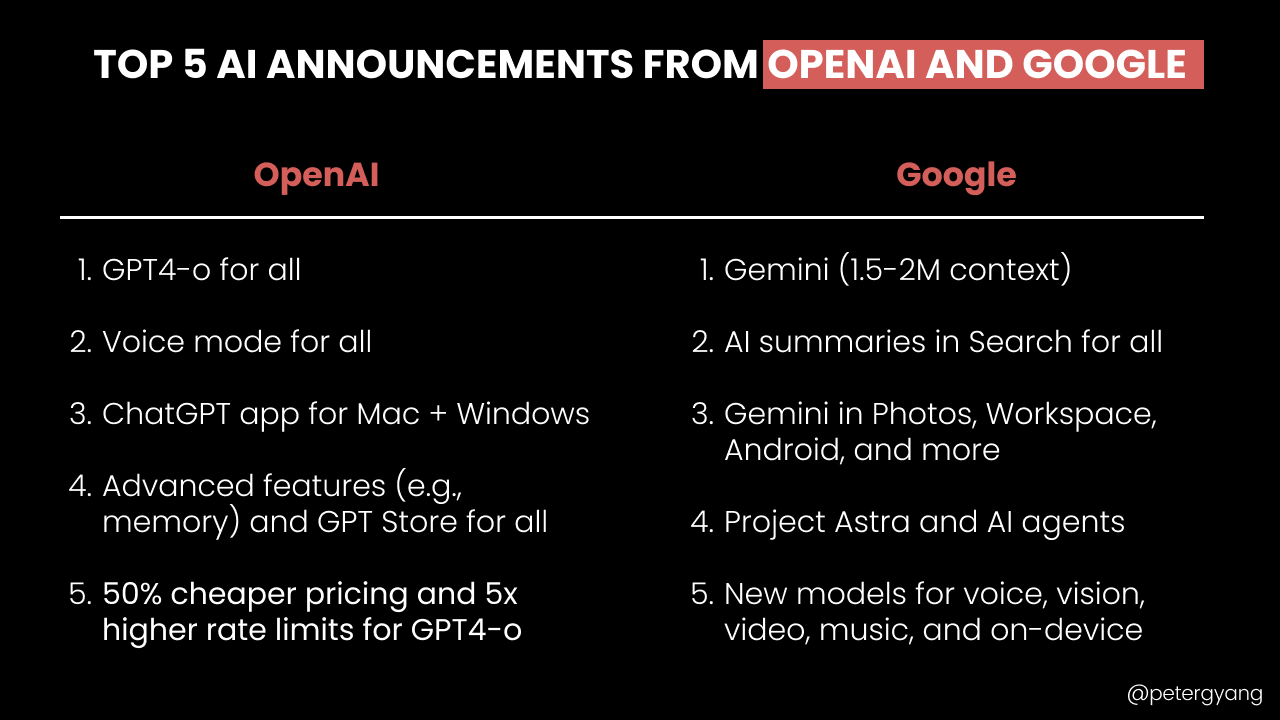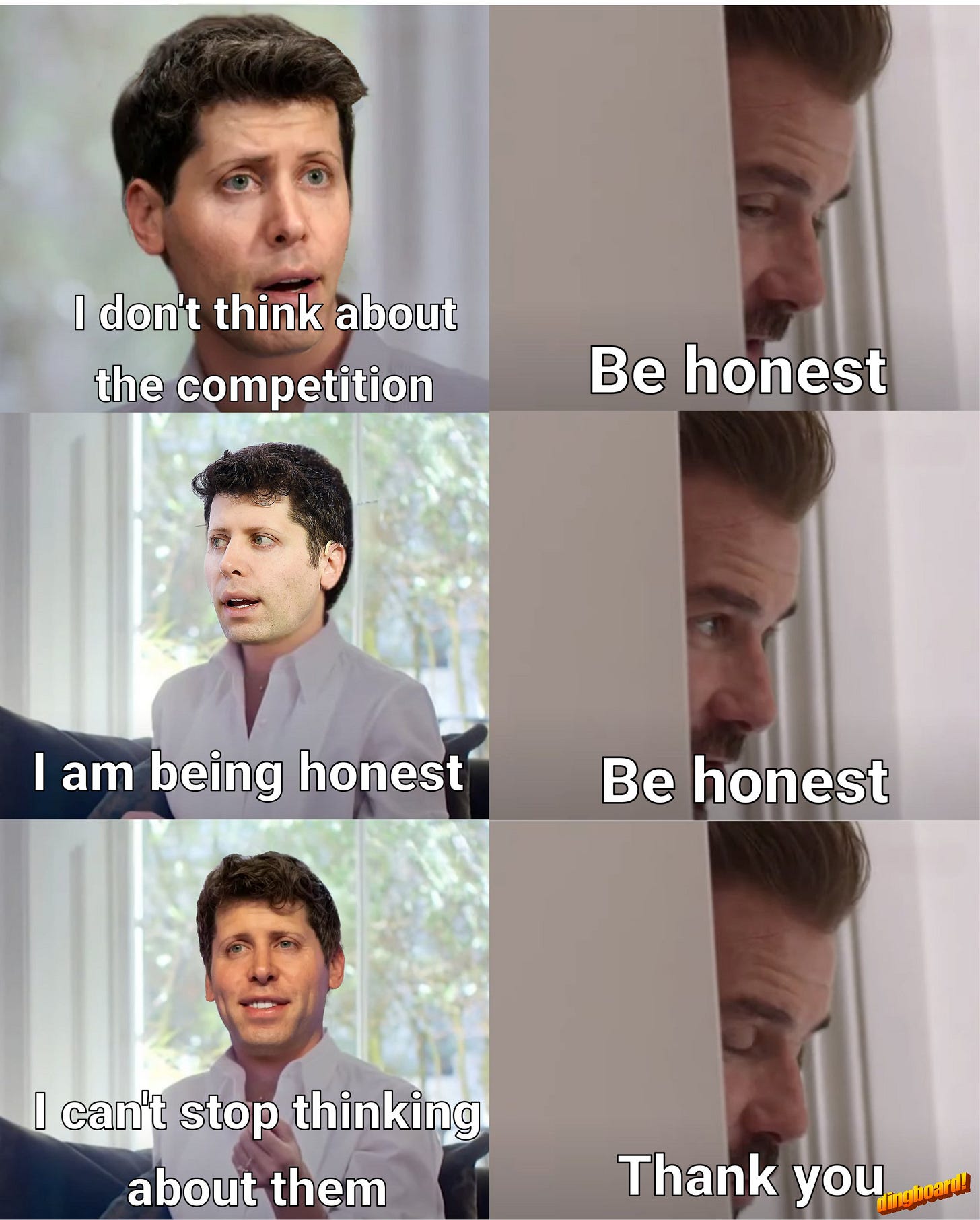OpenAI, Google, and the Race to Win Search and Consumer AI
OpenAI's strategy, Google's trump card, and overcoming the innovator's dilemma
Dear subscribers,
Today, I want to talk about OpenAI and Google’s heated race to win consumer AI.
I watched OpenAI's keynote and attended Google I/O in person this week. So here are my unfiltered thoughts on:
The winner from OpenAI and Google’s AI announcements
Why OpenAI’s strategy isn’t actually about developers
Google’s trump card and overcoming the innovator’s dilemma
The winner from OpenAI and Google’s AI announcements
Here are the top 5 products that OpenAI and Google announced this week:
Both lists are impressive, but:
What stood out to me was not what each company announced but HOW they did it.
OpenAI’s keynote had 26 minutes of live product demos. Shortly after, it rolled out GPT4-o to all users and expects to launch the remaining features in weeks.
Google’s keynote, in contrast, lasted 2 hours and was heavy on slides and marketing videos, with many features “coming soon.”
Here are my takeaways from both events:
OpenAI is ahead in AI product innovation. Many of Google’s upcoming AI features (e.g., Voice, Vision) are already available in ChatGPT.
People are tired of announcements with no launch dates. Users and developers want clear launch dates rather than vague timelines.
More live product demos, fewer slides. I couldn’t help but feel bored by Google's marketing videos. I wanted to see authentic demos of the actual product.
So, I think OpenAI won this round despite the entire superalignment team quitting afterward (more on the drama below). Speaking of which…
OpenAI’s strategy isn’t actually about developers
OpenAI’s strategy is to scale to as many users as quickly as possible.
Here’s the set of actions they’re taking to achieve this:
Make ChatGPT more sticky. ChatGPT already has 100M weekly active users. Features like Voice and the desktop app will make it even more personal and sticky (who doesn’t want to talk to AI Scarlett Johansson?).
Roll out the best model to all free users. GPT4-o is much faster and cheaper than GPT4. OpenAI is releasing it to everyone so more people can connect “ChatGPT” with the magic of LLMs, similar to how Google = Search.
Become the default voice assistant for Apple devices. Although still a rumor as of this writing, it would be a significant blow to Google if ChatGPT Voice replaced Siri (Apple has 1.3B iPhone users worldwide).
Of course, a robust developer ecosystem of GPTs and integrations will also help OpenAI scale to more users. But at this point, OpenAI is primarily a consumer company. They have a better product and want to scale it at all costs.
This is what led OpenAI’s entire super alignment team to quit this week over concerns that scaling new AI products has taken priority over AI safety:
Sam Altman and Greg Brockman wrote a long post in response. At this point, OpenAI's penchant for drama might be the only thing slowing it down.
Google’s trump card and overcoming the innovator’s dilemma
Google’s strategy is to integrate AI into its existing products.
Its trump card is its distribution. Here are the actions Google is taking:









